Newton Stewart firms still dealing with aftermath of floods
- Published
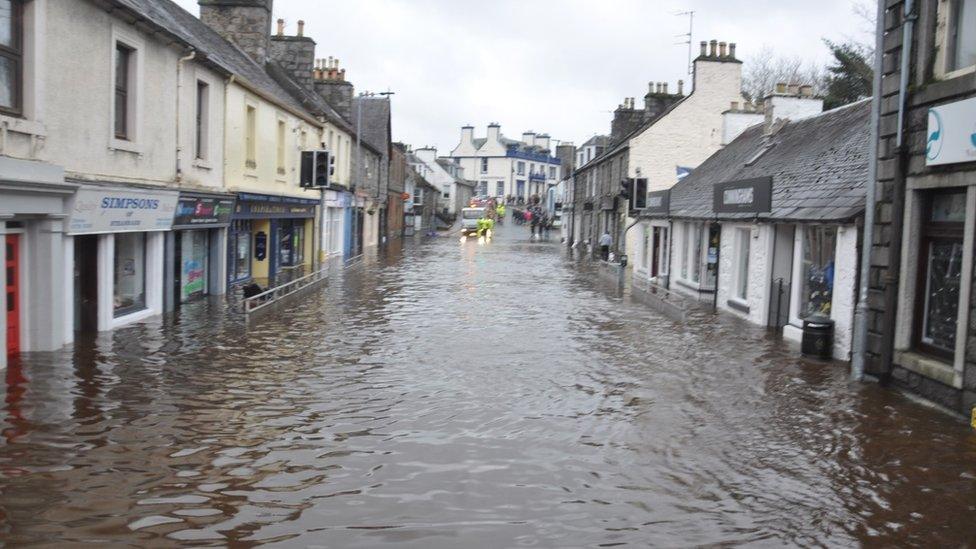
Newton Stewart was badly affected when the River Cree burst its banks on 30 December
The storms and floods that hit Scotland at the turn of the year caused millions of pounds worth of damage to the economy and real misery for many businesses and individuals.
And while the destruction they caused may no longer be in the headlines, the after-effects are still being felt in towns such as Newton Stewart in Dumfries and Galloway.
Standing next to a huge pile of flood-damaged stock, Chris Cadman-Goodwin is thinking about how much work it represents.
"When I look at it and think that's probably 10 or 15 years worth of collecting bits and pieces that people would have needed at some time and now it's scrap - that's a shame," he says.
Mr Cadman-Goodwin started his Newton Stewart-based company Scottish Data Systems in 1991. He supplies legacy and end-of-life computer systems and spares throughout the UK and the world.
The shelves here are stacked with all sorts of equipment, including power supplies, disc drives, old service systems - some of them going back 25 or 30 years.
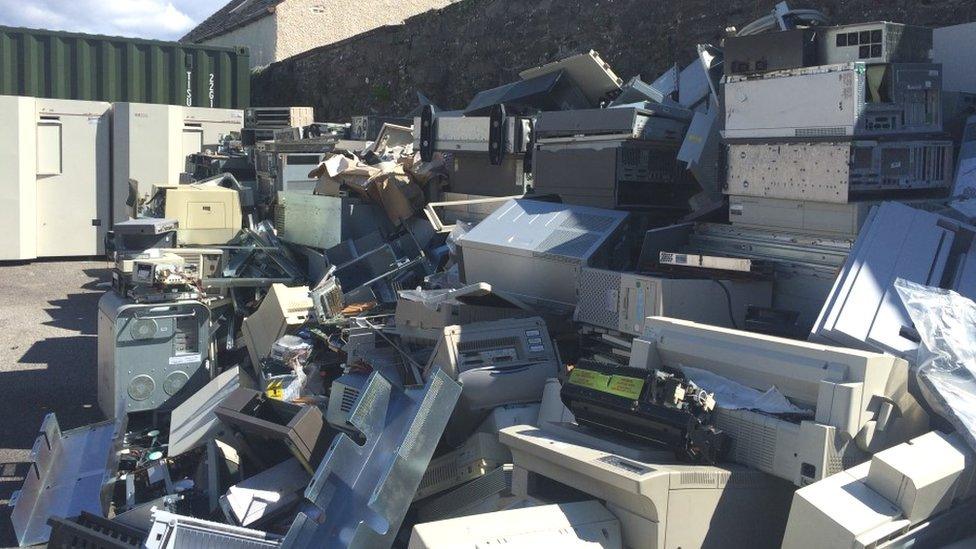
A huge pile of flood-damaged stock stands outside a warehouse run by Chris Cadman-Goodwin in Newton Stewart
Newton Stewart was badly affected when the River Cree burst its banks on 30 December, sending water cascading down the main street and straight into a couple of Mr Cadman-Goodwin's warehouses.
"It came and went within a few hours but just devastated this particular warehouse," he says.
The water reached just over 3ft and with a lot of equipment in cardboard boxes and on the floor, there was too little time to move anything.
"We just had to helplessly stand and watch as it took place," he adds.
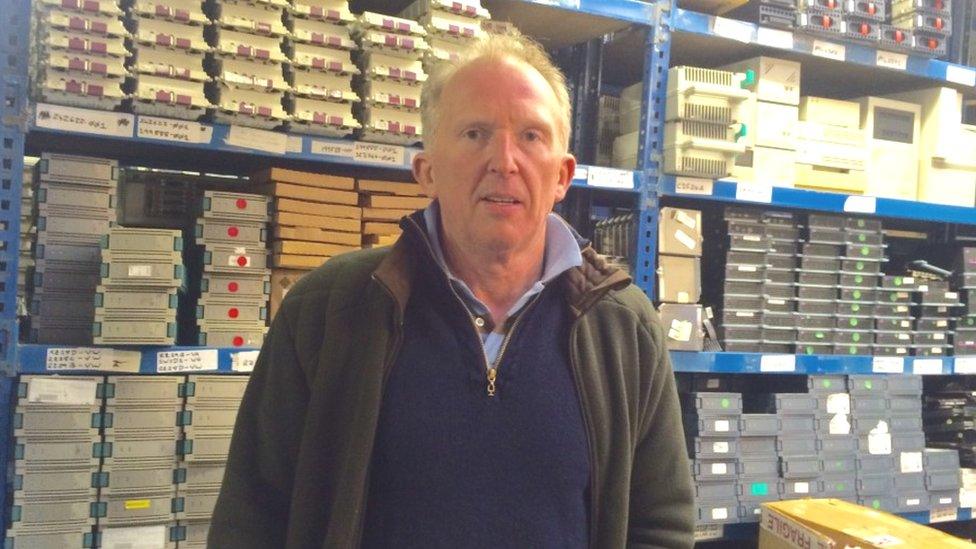
"We just had to helplessly stand and watch as it took place," says Newton Stewart businessman Chris Cadman-Goodwin
The last of the dehumidifiers was switched off last week, but the real refurbishment work has yet to begin.
Part of the challenge has been that each piece of equipment has had to be gone through piece by piece to see if it can be used or not. Much of what has been lost is irreplaceable.
For businesses across Scotland the aftermath of the storms has brought real challenges.
The accountancy firm PwC has looked at the economic impact of the floods. It believes the cost to the Scottish economy was of the order of £550m and that insured losses were about £225m.
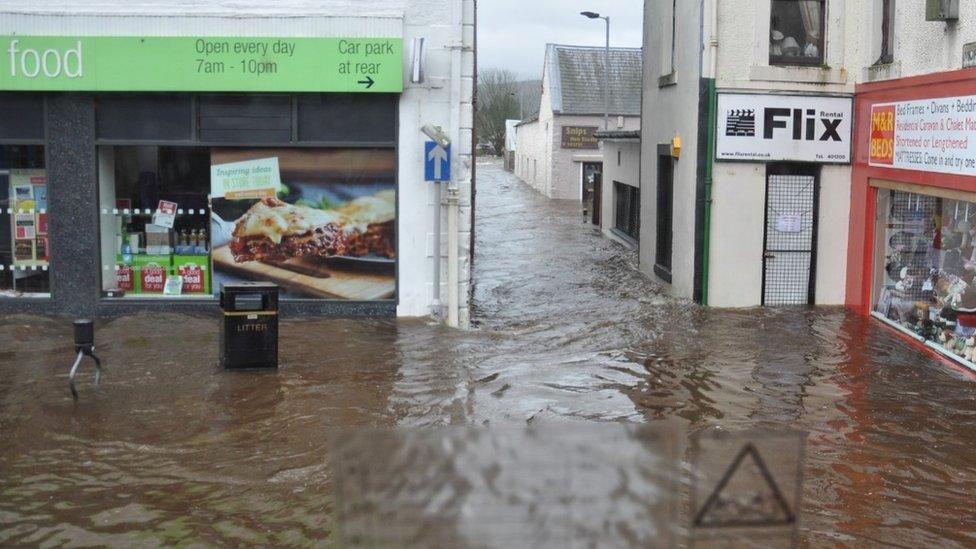
Businesses were badly hit in Newton Stewart when floods swept the town
Paul Hendy from the charity, the Scottish Flood Forum, says: "Many small businesses, particularly if they've been flooded more than once will just say, 'well, this is absolutely the last straw - we're just not going to reopen, we're just going to close the doors and walk away from it completely'."
He has been travelling up and down the country, hearing from communities about how they are recovering.
Insurance is one issue which has been raised, with some telling him of unnecessary delays in processing claims.
But that claim is rejected by Malcolm Tarling of the Association of British Insurers, who says the industry always looks to deliver where there is an emergency.
He says: "I think insurance companies have done well. They've stepped up to the plate because this is the shop window upon which an insurance company is judged, so they have to deliver to their customers."
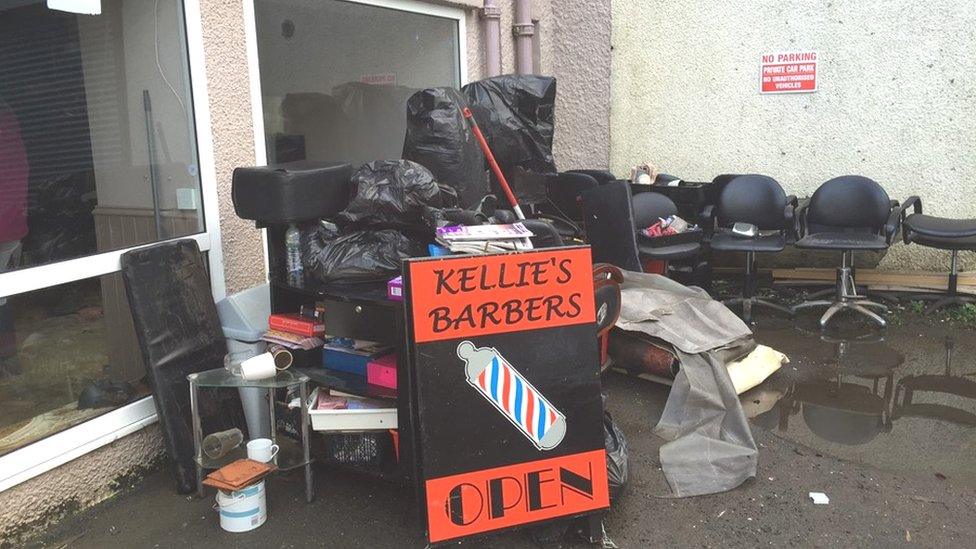
The flooding damaged property in many Newton Stewart businesses
Back in Newton Stewart, it has been a challenging time for some of the affected businesses.
"Anything that we hadn't been able to pick up off the floor had just been tossed about by the force of the water," says Linda McClelland, the owner of Snips hair studio in the town.
She and her business partner kept the hairdressing going from their homes, while the salon itself was stripped back to the brick walls.
They are now fully open again for business, but does being so close to the river cause her any concern?
"I can't worry about that," she says. "We just have to move on and make the best of it. We hope it never happens but who knows."
Others in the town though have not yet opened again after the flooding.
"Within minutes the water was just rising outside the front door," says Roseanne Lowther, who owns Inspirations ladieswear shop in the town.
"If we'd opened the front door the water would have come in, so we couldn't go for sandbags or anything like that."
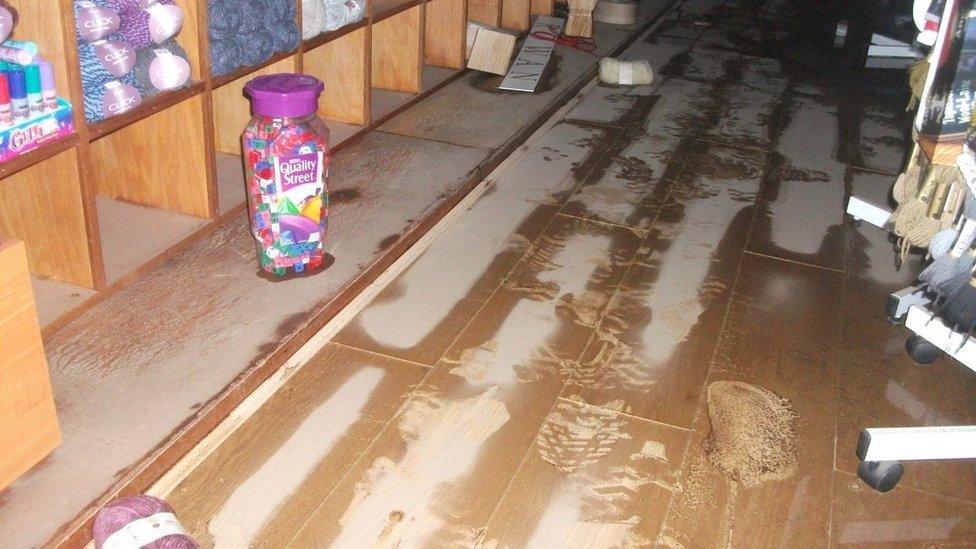
Ladieswear shop Inspirations in Newton Stewart was damaged during the flooding
They just moved things higher up in the shop or to the flat above and managed to save about 80% of the stock.
Still, the process of getting back into business has taken much longer than Ms Lowther imagined and she now hopes to open up again before the end of the month.
"I was trading one day, a successful business and then the very next day I had no business, no income - nothing.
"I had to decide how to save my business," she says, her voice breaking.
Plaster had to be removed from the shop, skirting boards, radiators, pipe work and more. The drying process took two and a half months and then there has been the refit. She has kept her staff on throughout helped by grant funding and insurance.
It has been a difficult time but she hopes it is coming to an end.
"I miss the people I see every day. It's a change of lifestyle, but it's changing back soon I hope."